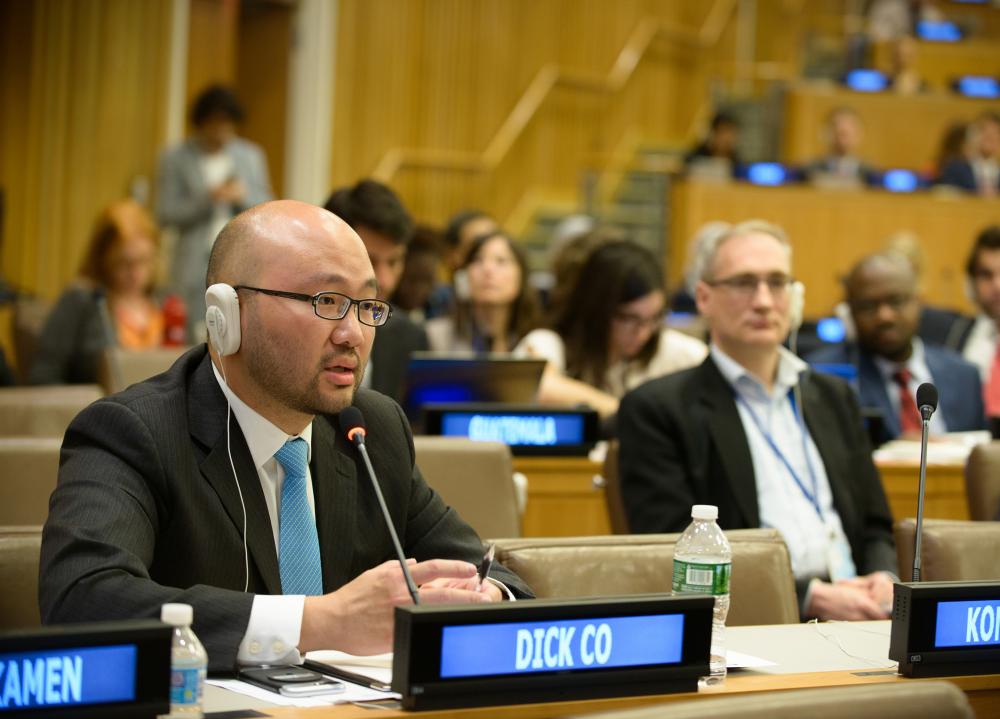
Teaching perovskites to swim
Perovskites have promise as a silicon alternative, and an Argonne-Northwestern partnership is improving the material by making it waterproof.
Northwestern's commitment to climate research and education
The Earth is getting warmer, ocean levels are rising and extreme weather events are becoming more frequent.
In acknowledgment of and response to our changing global climate, Northwestern brings together scientific research, entrepreneurial leadership and the living labs that are our campuses to advance marketable energy and sustainability solutions.
Read below about Northwestern ventures in the areas of solar power, climate, sustainable materials and water, as well as our efforts to be responsible global citizens through campus programs ranging from LEED-certified construction to resource conservation to sustainable transportation.
Dig even deeper at Northwestern’s Institute for Sustainability and Energy.
Solar energy is the most abundant energy resource on Earth, and the only renewable resource with the capacity to meet our growing needs. In fact, one of every 50 new jobs added in the United States in 2016 was created by the solar industry, where employment now surpasses the oil and gas extraction industries.

Perovskites have promise as a silicon alternative, and an Argonne-Northwestern partnership is improving the material by making it waterproof.

Dick Co joined other scientists, entrepreneurs and executives to address the global challenges identified by the 2030 UN Sustainable Development Goals.
The multiyear program will focus on innovations that accelerate bringing new technologies from lab to market.
Global energy demand is expected to increase 48 percent by 2040, making it imperative to develop cleaner, more efficient technologies for carbon-based fuels while working to replace them with renewable energy sources. The year 2016 broke the record for the warmest average global temperature that was set in 2015, which broke the record that was set in 2014.

A major gift establishes a program to improve our understanding of the global climate system and to evaluate low-carbon alternatives to fossil fuels.

Scientists have found a link between how planets in our solar system behave in their orbits and climate change over geologic time scales.

Scientists from Northwestern and Stanford are combining statistical analyses of climate observations with computer models to study the influence of climate change on extreme weather.
Meeting the consumer demand from the growing global middle class will require substantial improvements in the sustainability of products. For example, of the 246 million scrap tires disposed of in the United States in 2015, only about 30 percent were downcycled. More than 50 percent were burned for fuel, and 10 percent were landfilled.

Northwestern materials scientists have developed a simple strategy to modify the way polymers in rubber are linked, making it an easier target for recycling.

Northwestern entrepreneurs are bringing sustainability and energy solutions to market, disrupting industries from electric cars to produce.

A new computational design can pinpoint optimal materials in lithium-ion batteries, protecting them from degradation and extending the lifespan.
The World Economic Forum has identified water as the most critical global challenge for the next 10 years, with water crisis posing the single largest global risk for social instability. By 2025, 1.8 billion people are expected to face water scarcity.

In a development that could transform water purification worldwide, a Northwestern team has created an absorbent polymer to extract the toxin perfluorooctanoic acid from water.

Northwestern researchers are the first to provide a quantitative “global index” detailing which of the world’s coral species are most susceptible to coral bleaching and most likely to die.

At Indian Boundary Prairies, technology is changing the way the Nature Conservancy and partners like Northwestern protect our nature areas.
Northwestern is an engaged community dedicated to advancing sustainability initiatives and behaviors for the University.

The Resnick Family Social Impact Program supports student projects that address significant local and global challenges in sustainability and energy.

At 1,000 square feet, the student-designed House by Northwestern is part of the energy department's Solar Decathlon and a showcase of sustainable living.

Northwestern is creating a smaller environmental footprint and lowering energy costs by maximizing the performance of its underground steam trap system.
Published: June 08, 2017. Updated: July 09, 2017.
Back to top